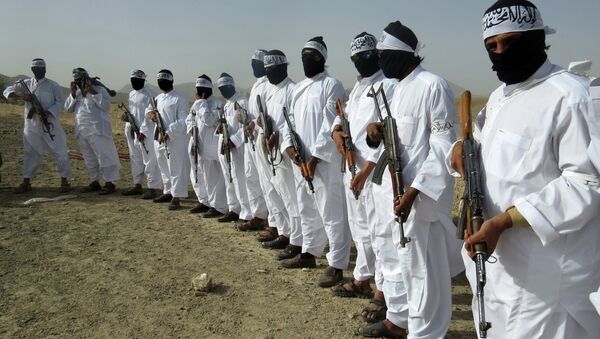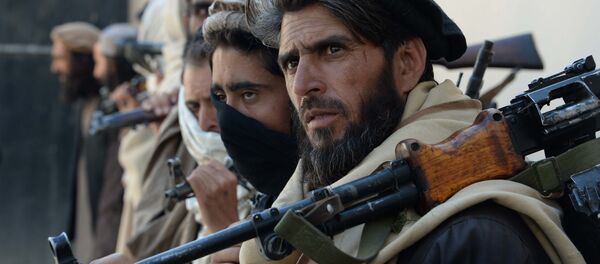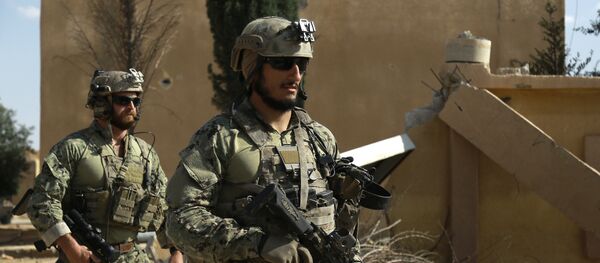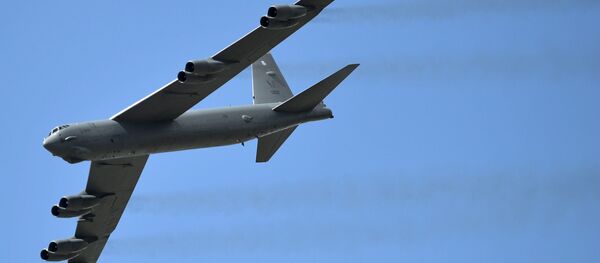The risk of a merger between Daesh (ISIS/ISIL) and the Taliban is quite real, Haji Mohammad Mehdiyar, the leader of the counterterrorism activist movement, told Sputnik Afghanistan, dubbing both groups "American marionettes."
Mehdiyar focused attention on the fact that previously the two terrorist groups had already teamed up in Afghanistan: "We have already witnessed [this] cooperation in the province of Sar-e Pol," he recalled.
At the same time, the Afghan activist raised the question as to why the US still fails to eradicate Daesh terrorists in the region.
He emphasized that the US had managed to eradicate one of the former Taliban leaders, Akhtar Mansour in Pakistan, asking what then prevents Washington from destroying Daesh in Sayyad, Khoshtipe and other Afghan regions.
"The Afghan government and the Ministry of Defense should explain why they do not conduct an air operation in the regions of the country associated with Daesh. Why cannot the 36,000-strong Afghan Army eradicate 2,000-3,000 insurgents? These suggest that the Taliban and Daesh are the US's marionettes," Mehdiyar surmised.
Mehdiyar explained, "In the result of the cultivation and sale of opium poppy the peasant receives about $3,000, various government structures get $5,000, and foreign forces earn $190,000," adding that other sources of income include cultural monuments, minerals and uranium, which are being smuggled out of Afghanistan.
"Under the pretext of fighting terrorists, the Americans conduct multiday operations in Afghanistan, but in the result [of their actions], our land has been turned into a hornets' nest, while our cultural properties, mines and natural resources are being plundered," he highlighted.
The Afghan activist believes that Washington's other goal is the destabilization of neighboring countries, most notably Russia. The truth of the matter is that "Russia is the only country that resists" America's strategy for the Middle East and Central Asia, he stressed, adding that Moscow "wants peace in Syria and Afghanistan." For its part, Washington "created Daesh and the Taliban" to achieve its goals in the region, Mehdiyar insists.
He emphasized that the two groups "backed by the US" will finally merge since "they are eating from one and the same feeder."
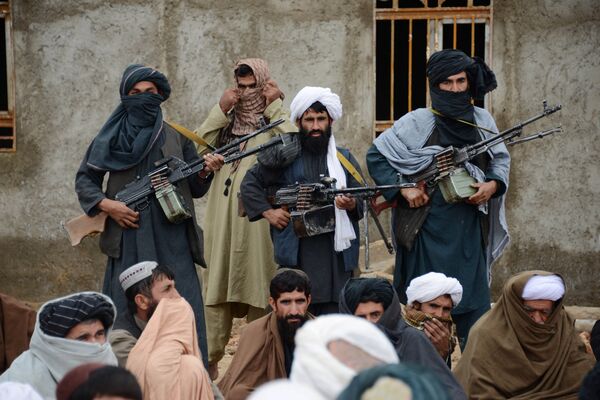
However, Afghan Defense Ministry spokesperson Doulat Vaziri threw into doubt the assumption that Daesh and the Taliban may come together in the region.
"It is difficult to imagine the merger of these two groups, because they pursue different goals," Vaziri told Sputnik, highlighting that in any event the people of Afghanistan will fight against both terrorist organizations.
According to Mojda, Taliban leaders view Daesh as "the American puppet," while the latter accuse the Taliban of "apostasy" because of the group's "friendship" with Qatar.
He added that the two groups continue to fight each other in the Central Asian region.
The political observer assumed that "the US created Daesh to weaken the Taliban."
"According to the US plan, Daesh must operate outside of Afghanistan," Mojda told Sputnik. "The Taliban announced that they are fighting for Afghanistan's freedom, so they must leave the stage. Now the US creates factions that will act beyond borders, spreading fear and horror everywhere."
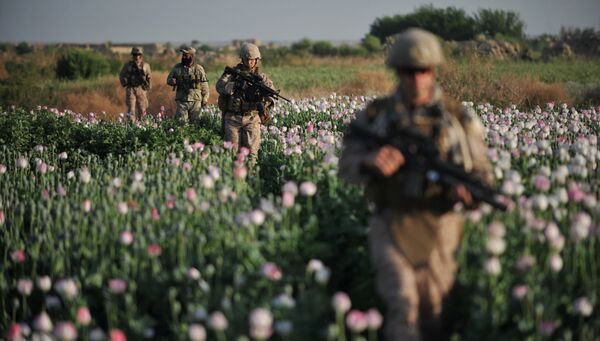
US Armed Forces' Activity in Middle East and Central Asia Raise Questions
Meanwhile, the US armed forces' actions in the Middle East and Central Asia continue to raise questions.
In early August 2017, Zamir Kabulov, a high-ranking career diplomat and Russian presidential envoy to Afghanistan, voiced concerns regarding the Pentagon's inability to thwart Daesh's advance in the country and contain the Taliban.
According to the Russian Foreign Ministry, in at least three provinces in the north of the Islamic Republic of Afghanistan (Jowzjan, Faryab, Sar-e Pol) an unidentified aircraft was spotted dropping boxes for Daesh militants. Kabulov noted that the issue was raised by Russian diplomats at a UN Security Council meeting.
According to a retired general of the Afghan Air Force, Atiqullah Amarhel, the unmarked aircraft could have belonged to NATO.
"Everyone knows that the United States and NATO are closely monitoring the situation in Afghanistan. The purpose of these flights is to advise and supply the terrorist groups," Amarhel assumed adding, "Nobody controls US and NATO planes," which "can bring anything into Afghanistan, as well as take out what they want."
Amarhel's concerns were echoed by some Afghan parliamentarians.
At the same time, the US military activity on the ground in Syria has prompted the Russian Defense Ministry to ask how American Special Ops and Syrian Democratic Forces (SDF) had managed to move through Daesh positions without any resistance.
Yet another issue was raised by Moscow after some 300 Daesh terrorists on pickup trucks infiltrated a US-controlled zone in Syria's al-Tanf region and then tried to block a strategically important road linking Damascus and Deir ez-Zor, which has been used for delivering humanitarian aid to civilians and supplies for the Syrian Army.
While the Pentagon refutes all allegations regarding its alleged "collusion" with terrorists, it has yet to provide explanations for what is occurring on the ground in these Middle Eastern and Central Asian regions.

